Judy Collins is a true treasure, a singer whose angelic voice made her a key figure in the Greenwich Village folk music scene and beyond.
She has written her own great songs, but Collins is best known for her interpretations of songs written by others. Notably, she was the first to record songs by Leonard Cohen (including “Suzanne” on her 1966 album In My Life), and amongst the first to cover songs by Joni Mitchell (a 1967 hit version of “Both Sides, Now”) and Bob Dylan (including “Masters of War” in 1963). She also recorded hit versions of “Amazing Grace” and “Send in the Clowns”.
This interview was for a preview article for noozhawk.com for the Judy Collins / Stephen Stills concert at the Arlington Theatre on 10/28/17. (Stills, of course, wrote the song “Suite: Judy Blue Eyes” about Collins.) It was done by phone on 10/9/17. (Anna Webber photo)
Jeff Moehlis: Have you been enjoying this tour with Stephen?
Judy Collins: Oh, it’s just great! It’s so much fun. It should be illegal, it’s so much fun.
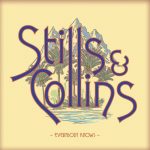
JM: I enjoyed listening to your new album Everybody Knows with Stephen. How did that come together?
JC: We managed to get ourselves into the studio before the tour, and had a chance to go through the things we wanted to sing and record them. So I was very lucky.
JM: The title track is a Leonard Cohen song, and your history with Leonard goes way back to the beginning.
JC: I was there at the beginning – the lucky one.
JM: To you, what was special about Leonard and his music?
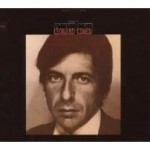
JC: Oh, everything. Everything, everything. And the fact that he brought me his songs. I know why he did, because he wanted to be recorded. He wasn’t going to sing. He said he never would sing in public. And he knew that all these other folks in the Village were singer-songwriters, and they were not about to listen to him. Why would they? They were writing their own songs.
So he knew exactly where to come, and he came to me in 1966. I was in the middle of making [the album] In My Life, and I had known a very good friend of his, and she brought him over to my house. That was where it all started. He sang me three songs that day. He sang me “The Stranger Song”, “Dress Rehearsal Rag”, and “Suzanne”. That started the love affair with his songs.
JM: I read that at one of his early performances you had to kind of push him out onstage. Is that correct?
JC: Well, not “kind of”. I bullied him and beat him up until he agreed that he had to sing onstage, he had to sing his own songs. I said, “This is never going to work for you if you don’t sing your own material, because you are the one.” I knew he could sing. I thought he was wonderful.
So I pushed him out on the stage. People have various stories about it. Some say it was The Fillmore, some say it was Town Hall. I don’t know where it was, but it was a great big huge fundraiser. Probably it was early ’67. I’d made the record with “Suzanne” on in in ’66, an album called In My Life that had a lot of interesting other things on it. And then ’67, I’m pretty sure it was… Anyway, I pushed him out on the stage. He started singing, and according to witnesses stopped and began sobbing in the middle of the song. He came back in the dressing room, and I said, “No, you have to go out there with me. We’ll sing it together, and we’ll finish it.” Because it was “Suzanne” – everybody knew the song by then, because it was a big song from my album. It had a lot of radio play. People knew it. So we went back out and sang it together, and finished it.
And of course the rest is history, because he then decided, “Well, OK.” [Producer] John Hammond loved him. He started working with Columbia, which he did his whole life. The next 50 years were Leonard Cohen on Columbia.
JM: I assume at some he point he thanked you for giving him that nudge?
JC: Leonard never stopped talking about my influence on his fame. By the way, that’s an unusual thing. Some people are dreadfully jealous, or they don’t want to ever mention you or see you, or talk to you again. Leonard and I were close friends, and he was the deepest kind of pure soul that you could ever know. He was also an incredibly generous man, I will tell you that.

He had, of course, that big blow up where Kelley Lynch lost all his money. Well, she spent it on drugs and properties, and who knows whatever kind of mischief. But the fact is that seven million dollars was gone, and he had to go back on the road. And that’s where the miracle happened, where he was like a reborn prince. All of a sudden everybody in the world was going to see him.
In the last four years, Leonard has shown up for me financially, and done some things for me that allowed me to continue in ways that were productive for both him and for me. He was an unbelievable friend, unbelievably generous, a pure, pure spirit.
JM: Going back even before that time, you were part of the Greenwich folk music scene. Do you have any favorite memories from that time that you’re willing to share?
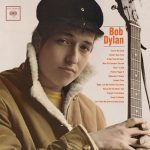
JC: Well, for instance, I moved here in ’63, and I got an apartment down in the Village, and everybody was there. I started working in ’61. I worked at Gerdes Folk City downtown, and all the legends of the then-thriving folk community were there. They all came to see me perform, and Dylan was there, and hadn’t started writing his songs yet. He was still singing old badly-chosen Woody Guthrie songs… not very well performed, either. He was homeless and kind of desperate, and kind of pathetic. He used to follow Ramblin’ Jack Elliott around like a puppy dog. He suddenly then started writing these incredible songs.
There were songwriters everywhere – David Blue and Eric Andersen and Tom Paxton who would come down the street and say, “I just wrote a new song – [sings] ‘Bottle of wine, fruit on the vine / When are you gonna let me get sober?’ So you want to record that?” [laughs] I said, “Sure!”
From ’61 I was managed by Harold Leventhal, who managed Pete Seeger, Woody Guthrie, The Weavers, Theodore Bikel, Alan Arkin of all people. So I was in the midst of this incredible stream of writers. I didn’t write songs. So they all brought their songs to me, because I had a record label from 1961.
JM: Clearly you have good taste in the songs that you chose to record. To this day, how do you decide what songs to cover?
JC: When they grab by the throat I have to sing them. And if they don’t, I never want to hear them again.
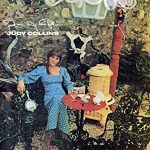
JM: You mentioned the album In My Life, which was a bit of a change in style for you with the orchestration and so on. What are your reflections on that particular album, and that direction that it took you in?
JC: Well, I was fortunate because Jac Holzman – the president of Elektra – is so brilliant. He’s still my friend. He had faith in me, and he gave me the chance to move and grow and change and mature. I started recording for him in ’61. I recorded Dylan in ’63 – I was one of the first people to record Dylan, “Masters of War”, etc. The Town Hall concert was ’64. ’65 was singer-songwriter.
Then by ’66, my producer Mark Abramson and I decided we wanted to jump off a cliff, and do something totally unexpected and different, which was to make an album of very different kinds of songs. We wanted the Berlin pre-War theater music of Brecht and Weill, so we chose “Pirate Jenny” from Threepenny Opera. I had heard a Peter Brook production of the Marat/Sade, and it had the most extraordinary music in it. I fearlessly took the tape and cut it up into pieces to make the music into a song, and record it with a symphony. So it was orchestrated. “In My Life” was on it, which was a real jump for me, off of the folk music bandwagon into the thin air.
And we were just about done, and Jac said to me, “This album needs something. I don’t know what it is, but it needs something.” We even recorded Dylan, [sings] “Lost in the rain in Juarez, and it’s Easter time too”, with an orchestra. So we were sort of in very dangerous territory, and then Leonard came to my door, and I called Jac the next day and I said, “I think we’ve got it. We’ve got what’s missing.” And I was right. He was right, and I was right, and Leonard was right.
I got the worst review from the Village Voice. He [Richard Goldstein] did a horrible review, which I didn’t see for years, which was lucky [laughs]. Anyway, he said it was just a dreadful album. It was a very good album. It was a very interesting album. It was certainly a departure, and I think probably “Suzanne” and “In My Life” were the two things that brought it up into the realm of necessity.
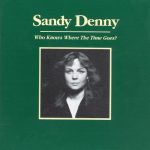
JM: A little bit later you recorded “Who Knows Where the Time Goes”, which is one particularly dear to my heart. Did you ever meet [the songwriter] Sandy Denny?
JC: I sure did. We became very good friends.
JM: What was she like?
JC: She was wonderful. She was great. We had a lot to do together, say together, sing together, drink together. We had a ball, both in New York and in London. I just adored her. Of course, she died a very sudden and unfortunate death – she fell down a flight of stairs, some years after Stephen and I and the band had recorded “Who Knows Where the Time Goes”. We’re doing it on our show. We’re doing it on our new CD, and on the show. It’s very poignant for me.
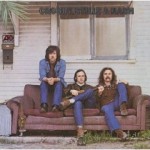
JM: Getting back to Stephen, what did you think and feel when you first heard his song “Suite: Judy Blue Eyes”?
JC: [laughs] I flipped out. He came and played it to me before the CS&N version was out, and he had not played it for me when he wrote it. I knew about it – I mean, I knew he’d spent some time recording new songs, but I didn’t know what they were. He came to my hotel to give me a birthday present in May of ’69, and sang it to me on this guitar that he gave to me for a present. It was sort of heartbreaking and sort of gratifying at the same time [laughs].
JM: Is that your favorite Stephen Stills song?
JC: I love his songs. I love CS&N, I love the songs he’s written. We’re doing some of them on this show, and they’re just wonderful. We’re doing “Bluebird”, and he’s doing “For What It’s Worth”. We’re doing a reprise of “Suite: Judy Blue Eyes”. We’re just having a ball. We’re doing “Helplessly Hoping” – we didn’t record it, but we’re doing it in the show sometimes, and that’s also great.
JM: What advice would you give to an aspiring musician?
JC: Keep at it. That’s the only thing I know. You do it until you get it, and then you do it some more [laughs]. And also, pay attention to the press. Be cooperative. Do what you have to do. You have to be self-motivated to get this thing done.
I don’t know if it’s any easier than it ever was. I know it’s always very hard. It was hard for me, it’s hard for everybody. So don’t think you’re being picked on because it’s hard. It is hard. But if you keep at it, and you’re passionate about it, and you get the understanding that you get paid for the travel and the flying and the no sleep rather than the singing, then you’ll be OK.


Hello,
Delightful interview. I would like to submit
a song to Judy Collins for consideration.
Can you provide me with any contact info?
Thank you,
Gary James
Gary, thanks! Unfortunately I can’t give out her contact info, but you can try to reach her through her management or publicist. A bit of googling might lead you there…